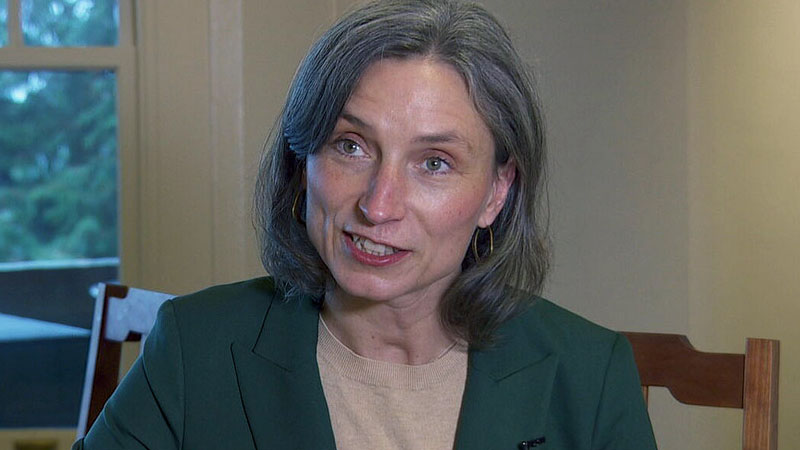Project 2025 Architect’s Daughter Benefited from NIH-Funded Drug as Trump Administration Slashes Research Grants

© AP Photo / Manuel Balce Ceneta
The Trump administration has imposed a significant funding cap on the National Institutes of Health (NIH), limiting indirect research cost grants to 15 percent—down from the previous average of 30 percent. The decision has sparked concerns among experts, who warn that the move could have a devastating impact on medical research advancements.
Read Also: Arizona Judge Allows Fake Electors to Challenge Charges Under Free Speech Law
Read Also: Steve Bannon Challenges Elon Musk to CPAC Debate Over Trump Agenda
Medical professionals and researchers have raised alarms about the implications of this funding cut, with some describing the effects as “cataclysmic.” They argue that restricting research funding will slow scientific progress and could jeopardize critical studies aimed at developing life-saving treatments.
In its announcement, the NIH defended the decision, emphasizing the importance of ensuring that taxpayer dollars are used effectively. “NIH is obligated to carefully steward grant awards to ensure taxpayer dollars are used in ways that benefit the American people and improve their quality of life,” the agency stated.
Despite this stance, recent revelations highlight a striking contradiction. Julia Métraux, a reporter for Mother Jones, pointed out that the daughter of Russell Vought—recently confirmed as Trump’s head of the Office of Management and Budget—has directly benefited from a drug linked to NIH-funded research.

“But some of those so-called insiders—that is, the NIH—funded research that helped scientists better understand cystic fibrosis, which led to Vertex Pharmaceuticals developing a cutting-edge treatment that Vought’s daughter Porter benefited from,” Métraux reported.
Read Also: Hakeem Jeffries Accuses GOP of ‘Bait and Switch’ on Grocery Prices
Read Also: Trump Removes Ethics Chief in Move Echoing Past Clashes Over Oversight
The drug in question, Trikafta, has demonstrated significant promise in managing pulmonary complications associated with cystic fibrosis, a condition affecting approximately 40,000 Americans. In 2021, Vought’s ex-wife publicly shared on Instagram that their daughter had started taking Trikafta, underscoring its impact on her health.
Currently, NIH backs a nearly $3 million study on Trikafta, in addition to providing $84 million annually for research related to cystic fibrosis. However, Vought, now a key figure in the administration’s budgetary decisions, has been instrumental in advancing policies that restrict NIH’s financial support for life-saving medical research.
Métraux highlighted the contradiction, stating that Vought “appears to be shutting that door firmly behind him, helping to mount a dizzying range of attacks on lifesaving medical research at (and beyond) NIH.”
The decision to reduce research funding has drawn strong criticism from the scientific community, which argues that cutting resources for critical medical research could hinder future breakthroughs and limit access to essential treatments. While the NIH remains a key player in advancing medical science, experts fear that such drastic budget constraints will slow progress and place lifesaving developments at risk.
For You:
- Trump Secures Release of American Teacher from Russia, Keeps Deal Terms Secret
- Wall Street Journal Warns Trump Against Repeating Trade Policy Mistakes
- Rep. Nancy Mace to Reveal Video Abuse in Emotional House Floor Speech
- VP J.D. Vance Sparks Outrage With Threat to Defy Federal Judges
- Justice Department Drops Corruption Case Against NYC Mayor Eric Adams
- Trump Admits Tariffs May Raise Prices, Says Plan Will ‘Be Less Expensive’




